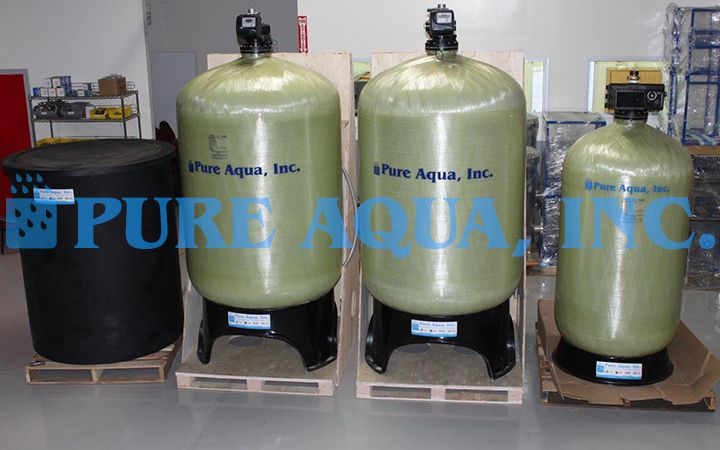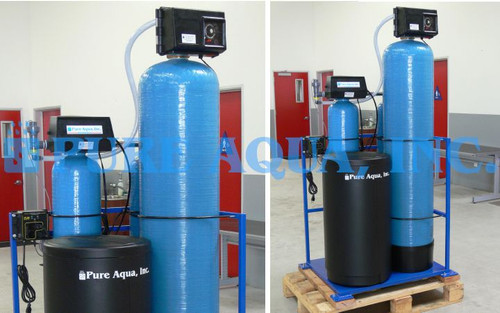The way the twin alternating softener unit works is by having one tank remove hardness while the other is regenerating. The first tank is full of resin that is saturated in sodium ions. As water is going through the cycle, the resin attracts the calcium and magnesium ions that make the water hard. This then leaves the water with only sodium ions which do not have the same effect on soaps and detergents as calcium and magnesium ions have which leaves the water "soft". Once the first tank is full to capacity of taking calcium and magnesium ions, the tanks switch roles. Now the second tank will accept the role of removing hardness from water. The regeneration part of the process flushes a solution full of sodium ions through the tank, the resin now releases the calcium and magnesium ions and absorbs the sodium ions. This leaves the tank and resin in its original state again in order to repeat the process. The calcium and magnesium ions are discarded leaving the water soft and ideal for usage in hotels, schools, or restaurants.
Date: October 2011
Country:United States
System/Product: Twin Alternating Water Softener System
Flow Rate: 14,000 GPD
Components & Brands:
- Clack valves
- Ion Exchange Softener
[custom-specifications]
Hardness in water does not allow soaps to work to their full capacity. Hardness makes it difficult for clothes to be cleaned and leaves skin with a "slippery" feeling.
[/custom-specifications]
[custom-features]
A Twin alternating water softener system complete with Clack valve, carbon and 2" heavy to a major company in CA, USA. The twin alternating water softener unit was created and executed in order to remove hardness from water.
[/custom-features]
[custom-usage]
- Reduced costs / Material use.
- Less power consumption.
- Longer life span of plant equipment
- Decreased cost of repair & maintenance.
- Greater water quality
[/custom-usage]
[custom-documents]
[/custom-documents]
 ENGLISH
ENGLISH ESPAÑOL
ESPAÑOL العربية
العربية PORTUGUÉS
PORTUGUÉS FRANÇAIS
FRANÇAIS















